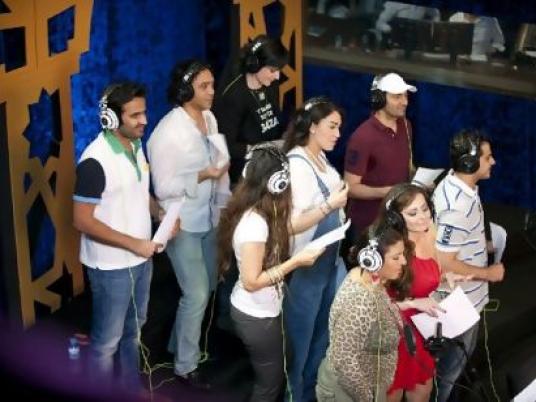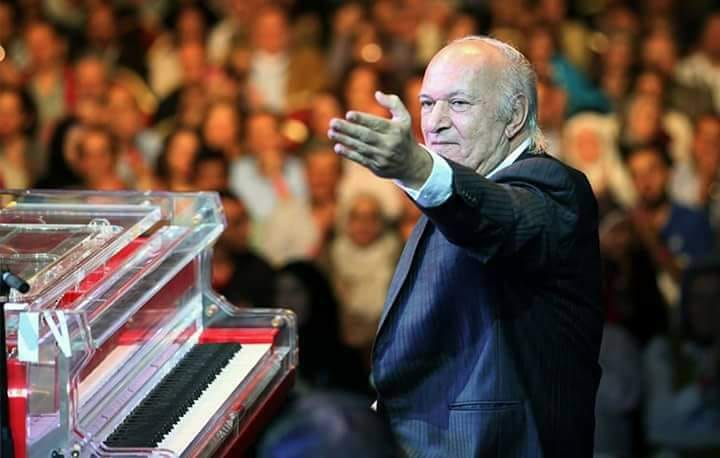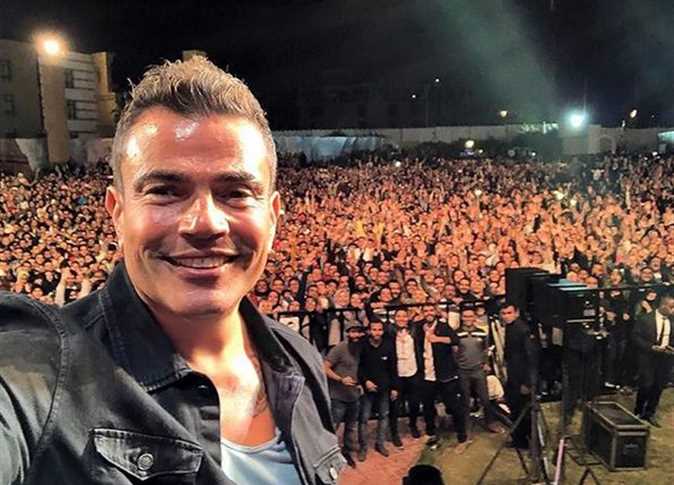
There is an uncanny consistency to super group charity singles. Whether it is Sting, Michael Jackson, or Tamer Hosny standing at the microphone, you can be sure he will be shaking his head back and forth, eyes closed, clutching his headphones with one hand and sheet music with the other. This is probably a matter of practicality, as jet-setting superstars do not necessarily have time to fully learn the music to a song they will share with 20-50 other superstars. Nonetheless the language of this small, but ever-appealing genre of music is impressively unchanging, across cultures and decades.
Times have changed since Band Aid launched the super group charity single genre in 1984 with "Do They Know It's Christmas?" featuring U2, Boy George, Sting, Tears for Fears, and a host of other mostly British icons out to raise awareness for famine in Ethiopia. That early effort was a little lower budget and a little more new wave – with much more incredible haircuts – than the efforts that followed.
In 1985, producer Quincy Jones, in collaboration with Michael Jackson and Lionel Richie, birthed "We are the World," the greatest charity single of all time and now the go-to song for any natural disaster or famine relief campaign (here in 2010, for Haiti, and for the tsunami in 2007).
Jones has recently turned his attention to the Arab world with a new super group single "Tomorrow/Bokra." Produced with Emirati Entrepreneur Badr Jafar, it gathers a cast of 24 Arab pop stars from 12 countries, to support education and the arts in the Arab world through the Arab Fund for Arts and Culture.
“Bokra” is in fact an Arabic adaptation of Jones’ own 1989 hit "Tomorrow (A Better You, Better Me)," and it sticks to the established formula faithfully, although it features a higher level of production than most such videos, and includes footage of running children and occasional opportunities for stars to stand in settings other than the recording studio. Still, for much of the eight-minute video, the stars sway together happily behind large standing microphones, with a now 78-year-old Jones shakily directing.
The project’s timing, in the midst of political upheaval throughout the Arab world, would seem to suggest a theme connected to the ongoing revolutions. But the introduction by half-Lebanese superstar Shakira only vaguely refers to “A great moment for watching 24 Arab artists uniting their voices,” and the message of the song is a simple, abstract, optimism-filled call for peace:
We are a new day; we are a banner for peace / We are the flute of love and the soul of music / We are a thousand and one nights from the East of dreams.
But alongside the message of peace and unity throughout the region there may be some country-specific appeals. When it is Hosny’s turn to take his moment in the spotlight, the much loved and much derided singer wails with eyes imploringly fixed on the camera, “I love you my country!” In the wake of Hosny’s public shaming after his delayed embrace of the revolutionary protests in January, the message comes off as a plea to let bygones be bygones.
How much Jones’ project is really targeted at the Arab world is debatable. Though the single itself is in Arabic, the project’s website is only in English. But “Bokra” is not the first star-packed group sing-a-long to come out of the region. "Al-Hilm Al-Arabi" (The Arab Dream) produced by Libyan singer and producer Hamid al-Shairi, was released in the thick of the Palestinian Intifada in 2000 to unite the Arab world around the Palestinian cause.
Comparison of the two songs reveals an important requirement of the charity single, as essential as headphone holding and collective swaying. To unite as many artists as possible and appeal to a massive audience, the song must be carefully engineered not to alienate – easier to do when speaking about famine or hurricane relief than treacherously divisive political situations – and so “Al-Hilm Al-Arabi” is strangely apolitical.
The song was also recorded at a moment of conflict in the Middle East. And while it is more mournful in tone, its lyrics are nearly as generic as those in “Bokra”:
The darkness of the night may separate us, however / The brightness of the light can reach the furthest skies / This is our dream all of our lives, one bosom to gather us all in
While the charity single genre may be a little cheesy and a little trite, there will always be comfort in its consistency. In a world undergoing constant transformation, in the throes of mass revolt, where each day seems to bring progressively more disturbingly sci-fi communication technology, it is comforting to think that some things will never change. I cannot begin to imagine the haircuts that will be featured in the 2050 iteration of “We Are the World,” but I can sleep soundly knowing that the message will be simple and optimistic, that the tempo will not be too fast, that the headphones will be clutched with fervor, and that very few of the future’s superstars will have memorized their music.




